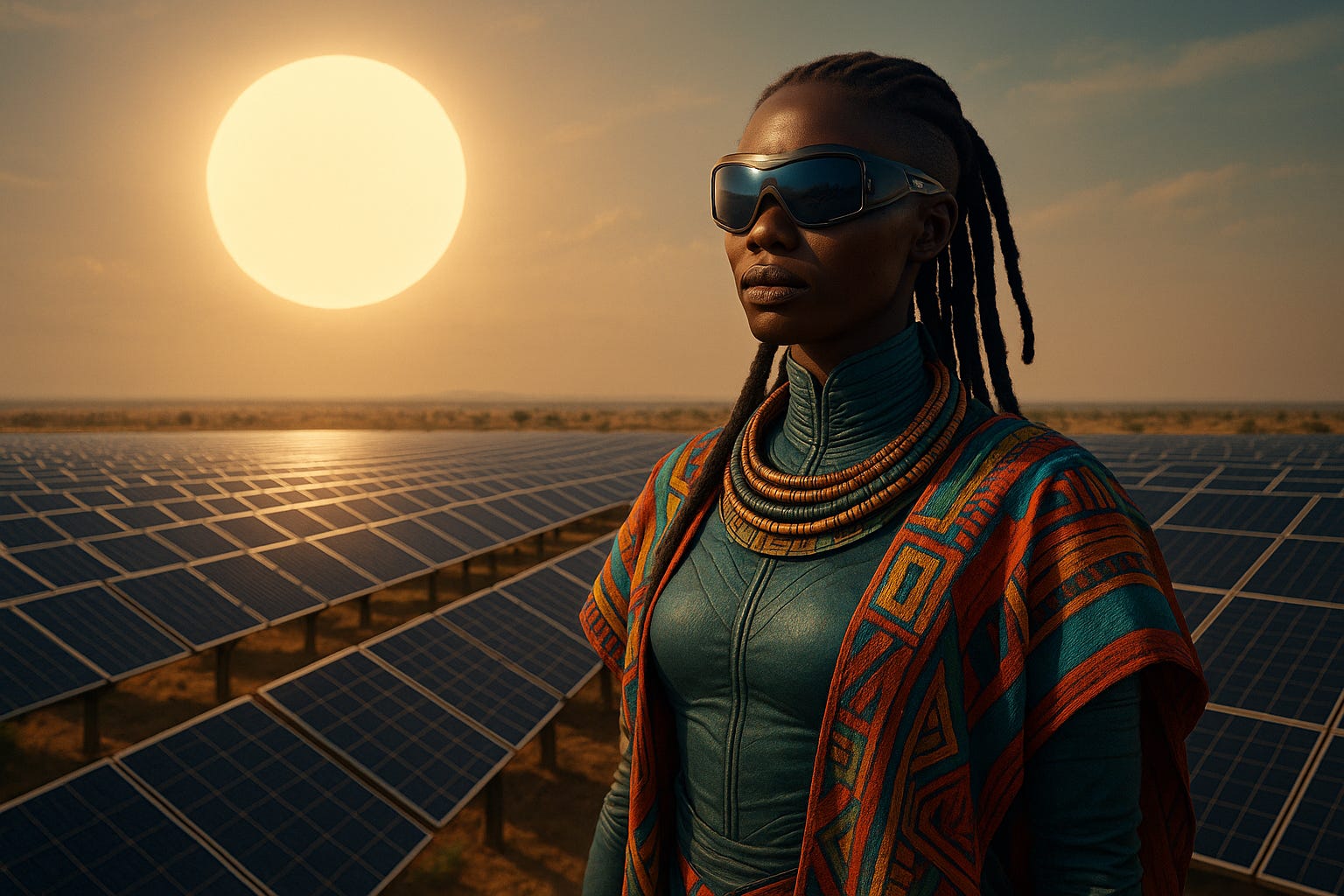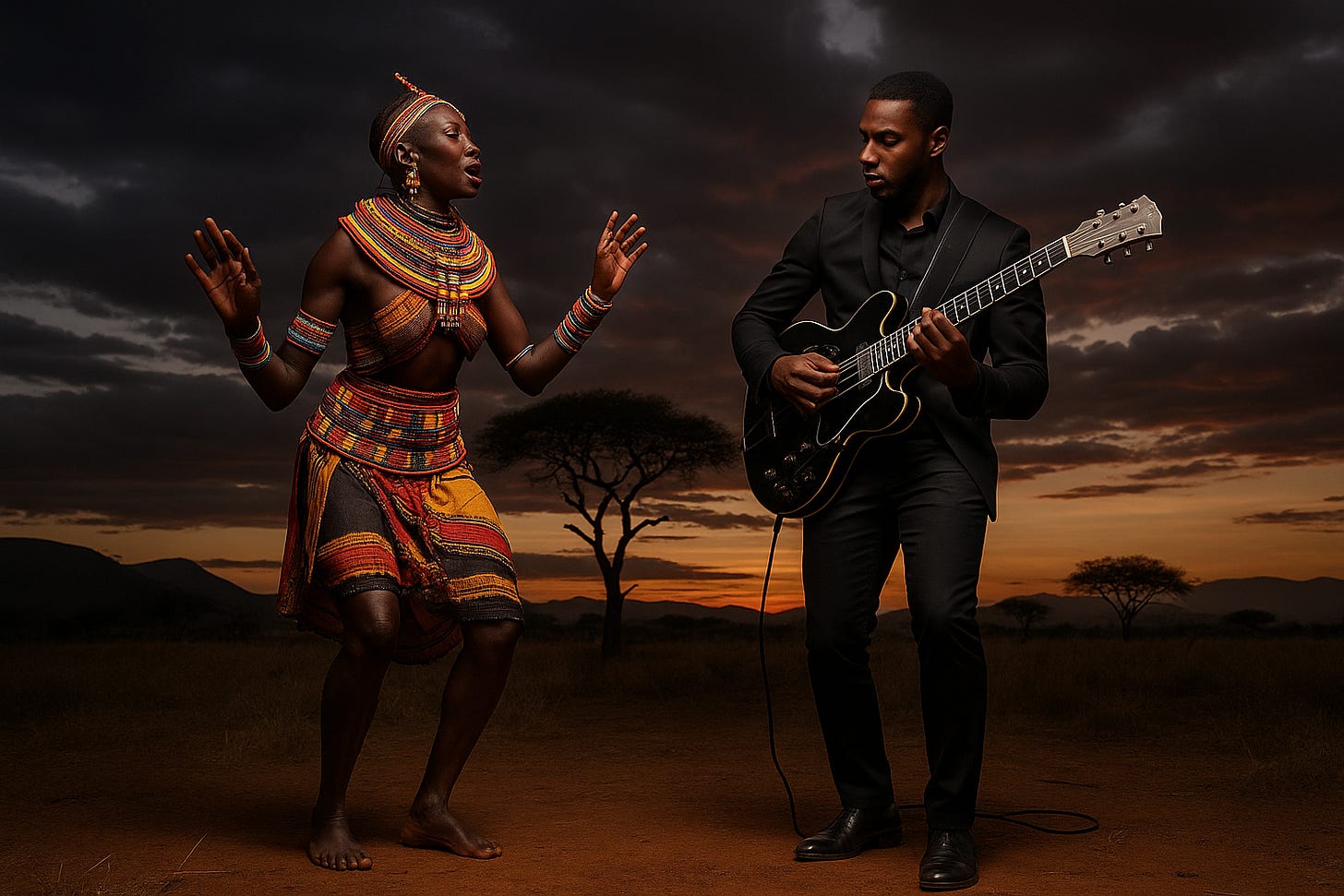On June 16, a somewhat chilly, dry day in Nairobi, the air carried more than just the cool breeze, it carried possibility. Despite the below-average temperatures, warmth radiated from the gathering of minds and hearts committed to a better future. TED Countdown Summit 2025 opened not under dramatic skies, but in a quiet clarity, fitting for the urgency and hope that would shape the days to come.
This first session, titled The Big Picture, offered more than a panoramic view of the climate crisis. It offered a kind of prophecy. One rooted in lived experience, collective struggle, and the fierce imagination of a continent that refuses to be a casualty of someone else’s future. Many of the speakers were African. The summit also drew people from across the world: business executives, scientists, policymakers, next-generation leaders, artists, and activists, all united by a shared commitment to building a brighter, more sustainable future.
The Future Grows From the Soil
Josephine Waweru’s voice was rich with purpose. A small-scale farmer from Kenya, she opened the Summit by telling a story that was at once modest and revolutionary. Scarcity of water threatened her land. But with a sun-powered water pump, the dry soil bloomed. Her farm became profitable. Her life changed.
In her story, I heard echoes of metsi ke bophelo — water is life, as the Basotho say. But I also heard something even deeper: a call to reframe African farming not as an emblem of poverty, but as a front line of planetary healing.
What if we redesigned farming not as extraction, but as ancestral technology? What if every smallholder was not a subsistence struggler but a climate steward, a regenerative designer, a solar-powered technologist of soil?
We must build toward a future where traditional knowledge is interfaced with data-driven, solar-optimised techniques. Where seeds are indigenous, land rights are sacred, and prosperity grows from the land up, not from trickle-down promises. Imagine an agro-ecological blockchain that tracks nutrient cycles, rainwater capture, and soil carbon in isiZulu, Kiswahili, and Setswana. Imagine smart village grids powered not only by solar panels but by cooperative governance — ka puso ya tirisanommogo.
Josephine’s story was not just one of survival. It was a blueprint.
From Oil Kings to Solar Commons
Matt Tilleard stood next. Calm, sharp, clear-eyed. He dismantled the logic of fossil empires in a single stroke. This is no longer a fuel-based transition. It is a technological one. And technology, unlike oil, is not owned by a cartel. It is scalable, shareable, and abundant.
But we must ask: abundant for whom?
Africa, the world’s sunniest continent, receives just 19% of global clean energy investment. Meanwhile, it is targeted for three times more fossil fuel infrastructure than North America. This is not a coincidence. It is designed. A colonial echo. The pipeline and the power line remain segregated by ideology.
To counter this, we must assert energy sovereignty. In a Pan-African future, power must flow from our sun to our people, through community-owned solar fields, clean cooking tech, and heat-to-cool conversion systems that run on discarded cow dung and urban food waste. As Tilleard implied, when supply is abundant and democratised, cartels collapse. And in their place, we might build energy kinships, not monopolies.
Making Nature Sacred Again
Ilona Szabó de Carvalho brought a word from Brazil. And though her forests were Amazonian, her concerns were universal. She urged us to see nature not as a backdrop, but as a protagonist. To build a nature-based economy that is high-integrity, innovative, and proudly local.
Here, Africa has something profound to offer.
Our economies have long been more-than-human. From the Gullah-Geechee rice farmers of West Africa to the Zimbabwean practice of zunde raMambo — the king’s communal granary — our ancestors understood that value was ecological, not extractive.
Let us imagine a Johannesburg Stock Exchange for biodiversity credits, backed by wetlands, not Wall Street. Or a Wakanda-style nature registry where tree guardians and river protectors earn digital credentials for preserving sacred groves. Let’s build bio-factories that generate income from wild fungi, marula oil, and regenerative charcoal. Not to commodify nature, but to commune with it.
As Ilona suggested, nature is a superpower. But it must be activated with spirit, not spreadsheets.
The Methane Mirage and the Waste Revolution
Mohamed A. Sultan shifted our gaze to methane — six times more dangerous than CO₂, yet obscured in climate discourse. He exposed the cynicism of an industry that pollutes while preparing its legal loopholes.
But Sultan’s message was not only one of critique. It was one of compost.
In African cities, waste is both a problem and a promise. Organic waste, transformed through biogas and composting, could revolutionise our economies and our climate footprint. In Soweto, Dakar, and Addis Ababa — imagine waste-to-wealth cooperatives that power local food markets, fertilise urban gardens, and restore dignity to the informal economy.
Sultan’s vision is not romanticism. It is regenerative realism.
Youth, Waste, and the Workforce of Tomorrow
James Irungu Mwangi reminded us of Africa’s demographic gift: our youth. Not “a time bomb,” as foreign pundits like to warn, but a solar-powered, waste-processing, AI-leveraging army of possibility.
In his words, climate action doesn’t only pay off in the future. It pays now.
Let us extend that logic to education. What if, instead of teaching only STEM, we taught STEMA: Science, Technology, Engineering, Mathematics, and Ancestry. Imagine curricula that combine drone technology with the land-mapping chants of the Nama, oral geographies passed from elder to child in the form of song. Each verse is a waypoint in the landscape, encoding generations of ecological memory. One Nama elder, asked how she could remember such vast terrain without a map, replied simply, “The land is our song. We do not forget the music.”
Mwangi’s dream is not employment. It is deployment. A mission greater than jobs: planetary healing.
From Division to Interdependence
Nada Majdalani spoke with the grace of someone who knows that water is never just water. In the Israel–Palestine–Jordan triangle, she is building peace through aquifers. Her organisation, EcoPeace, turns the sun and the sea into shared futures.
The lesson is universal: climate is not just a technical issue. It is geopolitical, spiritual, and moral.
Africa’s own border rivers — like the Zambezi, Limpopo, and Nile — must not become sites of conflict. They must become covenants. Let us build peace pipelines across regions, turning resource-sharing into reconciliation.
The Music of a New Era
And then: Turkana Sessions. A performance, yes, but more than that, a rupture. A reminder.
Turkana Sessions is a boundary-pushing Kenyan ensemble made up of artists like Jackson Nakuwa, Mourine Apuu, Jackson Ekori, Elizabeth Korikel, and Nairobi’s Eddie Grey. Their sound is a bold fusion of ancestral Turkana rhythms with soulful, electric jazz guitar. They describe their music as “a musical journey through the astounding culture and landscape of Turkana.” At Countdown Nairobi, they brought that journey to life.
Turkana chants met jazz basslines. Ancestral fire met electric groove. The audience clapped in sync with rhythms older than Nairobi, newer than tomorrow. It was tsamaya le pina, or flow with the song, as we say.
This was not nostalgia. This was speculative sonics. A portal to a time when tradition and technology are not opposites, but twins.
Turkana Sessions summoned the energy of a continent in metamorphosis — bold, Black, barefoot, and electric.
Energy Without Borders
Lei Zhang offered a powerful reminder: the challenge is not just to transition energy systems, but to redesign them entirely. Speaking of his work in the Gobi Desert — a place he described as “Mars-like” — he invited us to imagine an energy future without limits.
In the brutal extremes of the desert, where winter falls to minus forty and summer soars past forty, the sun remains a steady force — harsh, but abundant. That sun, he argued, can fuel a transformation as profound as the Industrial Revolution itself.
Over the past two thousand years, global GDP grew fivefold. In the 250 years since industrialisation, it has grown one hundredfold. The difference? Energy. Zhang’s vision asks: what would the world look like if we produced and used even more energy — clean, decentralised, abundant?
The answer, he suggests, lies not in fossil fuels, but in green hydrogen, solar ammonia, and cross-border megagrids. He sees the deserts of the world — the Gobi, the Sahara, the Outback — not as wastelands, but as frontiers. Places that could generate prosperity without pollution.
Africa, with its vast solar capacity and untapped transmission corridors, is central to this future. But the point is not just economic. It is planetary. Zhang called on us to design at both micro and macro levels, integrating local generation with global solidarity. In his vision, energy is not scarce, but shared. Not a battleground, but a bridge.
A Reckoning, and a Charge
Al Gore closed with fire. Numbers, warnings, truths. The damage is vast. The denial is deep. The stakes are existential.
And yet, there is light. The cheapest energy in history is solar. The fastest-growing economies are green. The Global South has more than enough solar potential to power itself many times over. What it lacks is equitable investment, the right infrastructure, and the political courage to break with old paradigms. The only thing stopping us is old power and old fear.
In Africa, we do not fear the future. We speak to it.
Re tla kopana gape, le gale. We will meet again, as the Batswana say — because what began in Nairobi must echo across the continent.
From Lusaka to Lilongwe, Maputo to Marrakech, our sun is rising.
Let this be our countdown:
Not to collapse, but to convergence.
Not to emissions, but to emergence.
Not to apocalypse, but to Africa.
Let the drumbeat begin.
Join Us at TEDxJohannesburg Countdown 2025
If Nairobi was the spark, Johannesburg will be the fire.
On 19 & 20 September 2025, TEDxJohannesburg Countdown reimagines what a TEDx experience can be. This two-day journey begins in the vibrant energy of Sandton and culminates in the tranquil beauty of NIROX Sculpture Park in the Cradle of Humankind.
Day 1 offers immersive workshops, excursions, and design sprints led by scientists, creatives, entrepreneurs, and community leaders. Designed for deep engagement and bold thinking, it sets the tone for what’s to come.
Day 2 unfolds in nature’s calm, where TEDx talks, performances, and creative activations will spark ideas for a better, greener, healthier, and more resilient future.
Grounded in South African realities, shaped by Global South perspectives, and tuned to planetary frequencies, this gathering will spotlight local solutions with global power. It forms part of a worldwide drumbeat toward two major climate moments: the G20 climate meetings in Johannesburg and COP30 in Belém, Brazil.
As one of only 18 TEDx events globally selected as an official TED Countdown Anchor, we are proud to hold this moment with care and courage. More than a platform, TEDxJohannesburg Countdown is a space of convergence, where ideas shift paradigms, where creativity fuels justice, and where hope is engineered.
Come walk with us.
To learn more and join the movement, visit: tedxjohannesburg.com












